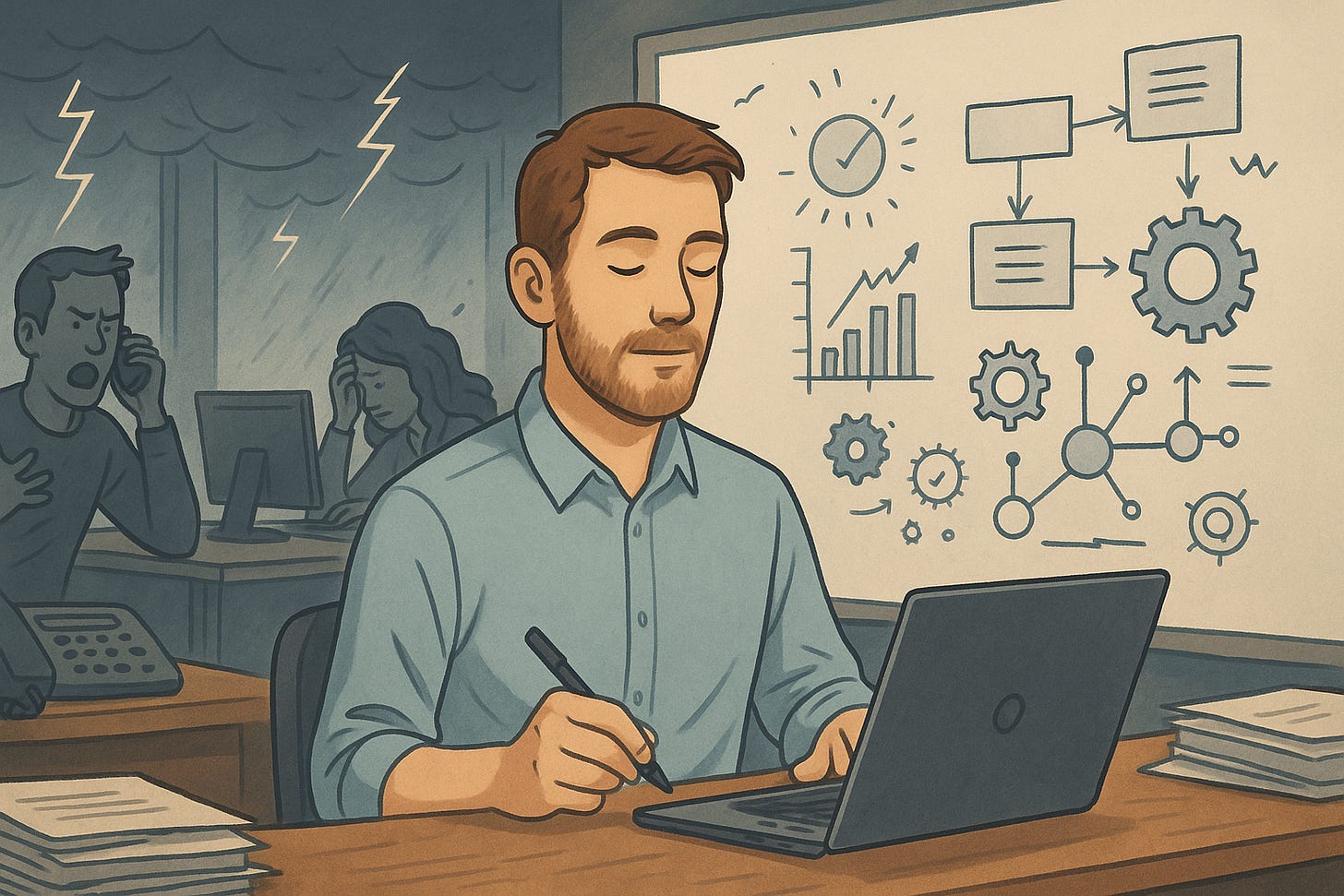The Power of Stoicism
Why Stoic Engineers Make the Best Teammates and Leaders
Software engineering is a discipline of uncertainty.
Requirements shift. Timelines tighten. Bugs emerge from the void at 4:59 p.m. on Fridays.
The only constant is that something will go wrong.
What separates great engineers from merely good ones isn’t just technical ability.
It’s mindset.
Stoicism — the ancient philosophy of self-mastery, clarity, and emotional resilience — might be the most underrated leadership skill in tech.
In fast-moving environments full of ambiguity and opinion, the engineers who stay calm, curious, and grounded in what they can control are the ones who lead with the most impact — whether they have the title or not.
⚖️ Calm Is a Competitive Advantage
Some engineers respond to fire drills with adrenaline.
Others respond with intention.
Stoic engineers:
Don’t get defensive in code reviews
Don’t personalize production incidents
Don’t spiral when requirements shift or priorities change
Don’t let ego block collaboration
They’re steady — not detached, but centered.
Because they know:
You can't control the problem.
But you can control how you show up to solve it.
🧱 Core Stoic Principles That Make You a Better Engineer
Let’s break it down. Here’s how timeless Stoic ideas play out in everyday engineering work:
1. Control What You Can. Let Go of What You Can’t.
Stoic principle: The Dichotomy of Control
You can’t stop flaky dependencies or surprise changes.
But you can:
Ask clearer questions
Write cleaner interfaces
Document tradeoffs
Communicate early and often
You don’t get bonus points for panic.
You earn respect by staying composed under pressure — and helping others do the same. Calmness under pressure is an essential attribute of successful engineering leaders.
2. Choose Your Response, Not Just Your Reaction
Stoic principle: Emotional discipline
When someone gives you harsh feedback or a PR full of nitpicks, it’s easy to get defensive.
But a stoic engineer slows down their response:
“Is there truth here, even if the tone’s off?”
“What does this tell me about expectations?”
“Can I use this to grow instead of shutting it down?”
This isn’t weakness. It’s strength.
Because humility builds trust, and trust scales faster than code.
3. Amor Fati — Love the Work, Especially the Hard Parts
Stoic principle: Embrace the obstacle
Bug reports aren’t interruptions.
They’re insight.
Unclear requirements? An opportunity to clarify.
An MVP that fails? A gift — data you wouldn’t have otherwise.
The best engineers don’t resent challenges.
They welcome them.
Because they understand that resistance is part of the path, not a detour from it.
🧠 Strong Opinions, Loosely Held — But Calmly Expressed
Being stoic doesn’t mean being passive or robotic.
Some of the most impactful engineers I’ve worked with had strong convictions and intense curiosity — but they delivered them with clarity, not volume.
Their arguments were rigorous.
Their tone was measured.
Their presence created space, not tension.
They didn’t need to dominate a meeting to shift a direction.
They influenced with composure, not control.
🌪️ Why This Matters in Today’s Engineering Culture
Modern teams face more volatility than ever:
Distributed environments
Rapid market shifts
High-stakes incident response
Competing priorities
Technical skill gets you in the room.
But your emotional discipline determines how much impact you actually have once you’re there.
Because no one wants to follow the smartest person in the room if they melt down under pressure.
People follow the ones who keep their head when it counts.
Who take ownership without blame.
Who hold the line when things go sideways — and then help others stand up straighter, too.
🎯 Final Thought: The Inner Architecture of Leadership
Every system we build reflects the people who built it.
So if we want systems that are resilient, well-factored, and trustworthy, we need engineers who are, too.
Stoicism isn’t about being emotionless.
It’s about being emotionally intentional.
So the next time everything breaks, the deadline moves, or the review gets tense — pause.
Control what you can.
Respond, don’t react.
And let your calm mind carry your strong opinions — not the other way around.


